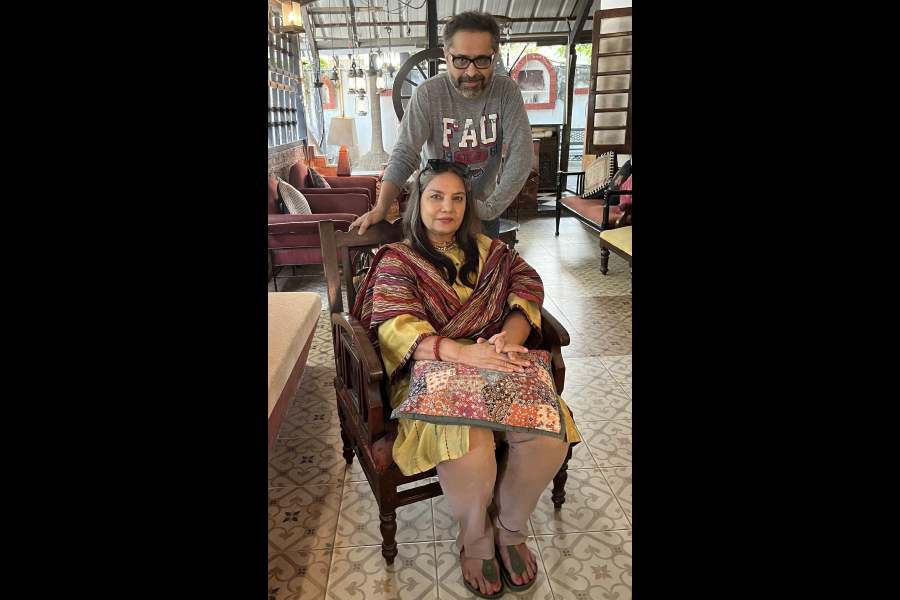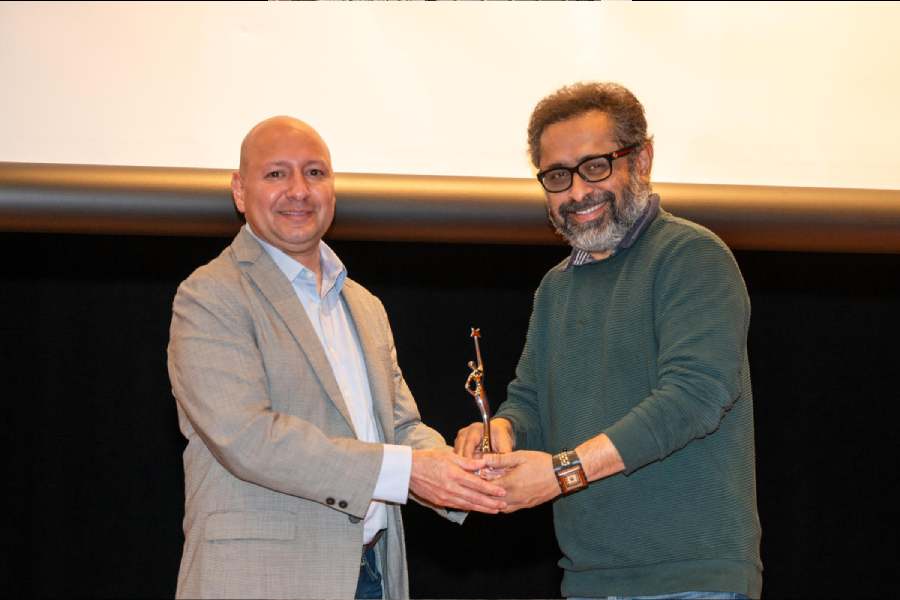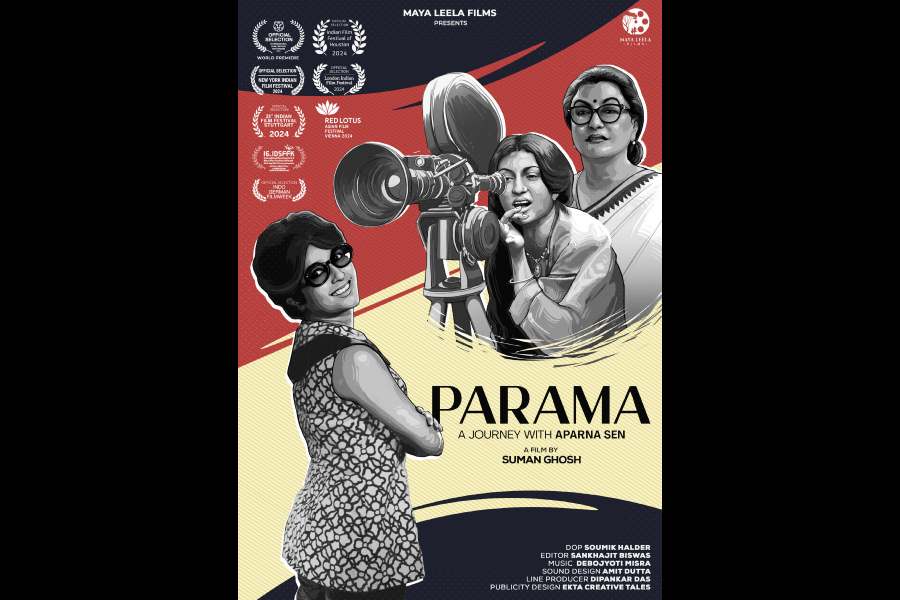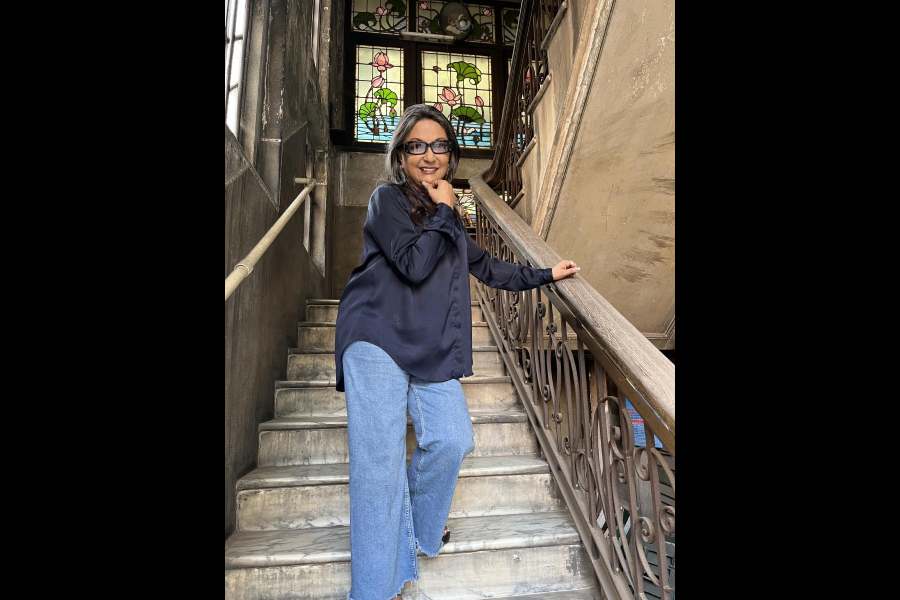The inception of Parama: A Journey with Aparna Sen took place in 2022. I had gone to Santiniketan to interview Aparna Sen (Rinadi) on the occasion of her birthday for t2. I don’t know why, but I had asked my assistant to shoot the interview. I had no plans of making a film on her at that point. It was after that interview I decided that the impressive gamut of her persona needed to be made into a film.
The toughest battle for me was to acquire the rights of her films from many obscure producers. The process of acquiring these could be a documentary in itself since I had to visit their offices and plead with them to give me the rights. Of course, Kunal Kapoor — Shashi Kapoor’s son — was very cooperative in giving me the footage of 36 Chowringhee Lane while I got many films from SVF.
I was also very fortunate to interview many personalities who could illuminate us on the different avatars of Rinadi. Rituparna Sengupta, Rahul Bose, Koushik Sen and Sohag Sen enlightened us on the acting process in Rinadi’s films while Shabana (Azmi) was extremely eloquent on both her acting process and her friendship with Rinadi.

Shabana Azmi and Suman Ghosh
One thing I wanted to explore was her formative years — how her parents nurtured her and how she, in turn, nurtured her daughters, Konkona and Kamalini. Konkona, of course, gives us the most comprehensive account of her mother — being an actor in so many of her films — and hitherto unknown aspects of Rinadi. Kalyan Ray also added a personal touch through a husband’s lens.
Shyam Benegal’s documentary on Satyajit Ray was a big inspiration for me. Previously NFDC funded a lot of documentaries... but these days they have stopped doing so. Given the dearth of such funding, I decided to embark upon this project through my own production house, Maya Leela Films, named after my two daughters Maya and Leela.
Of course, I had made a biographical documentary on Amartya Sen before and, hence, this could be a continuation of that genre... so I thought. I was very clear that I wanted to show it internationally at many film festivals before releasing it on OTT. The Bengali film industry is increasingly being self-confined to a narrow zone within the confines of Bengal itself. I surely did not want that to happen with this film since Aparna Sen needs a wider appreciation beyond just Bengal and India.
With that intention, I was elated that the film was accepted for a world premiere at the Rotterdam Film Festival, one of the top-tier film festivals in the world. Berlin also wanted it but, by that time, I had already committed to Rotterdam. That gave a good impetus to our festival run. In fact, this is the film out of all my films which is getting the maximum invites from festivals all over the world — Houston, New York, London, Kerala, Vienna, Stuttgart, Washington DC and counting. And this has been just six months since our world premiere.

Suman receives the award in Houston for Best Documentary
The last film festival I attended was the London Indian Film Festival. Though my films have been to this festival before, this is the first time I could attend it. The thing about film festivals which I most cherish is that you get to meet and interact with actors and filmmakers from other parts of the country. One gets to know what exactly the Malayalam industry is doing right such that so many phenomenal films are being made there.
The screening of our documentary took place at the prestigious ICA, which, I gather, is the Nandan of London. It is a fantastic auditorium situated right next to Buckingham Palace. We had a very vibrant and enthusiastic crowd for the screening. The post-screening Q&A was conducted by eminent film writer Naman Ramachandran.
He primarily asked me about my process of making films and this documentary. Post his Q&A it was thrown open to the audience where I found many of the questions quite intriguing. Somebody asked me about the structuring of the documentary which jumps across timelines of her career. The way I structured the narrative was that I took Rinadi to many of the iconic places where she shot her films.

The poster of the film.
Also, I wanted to capture her persona — filmmaker, actress, magazine editor, feminist and political voice — and I did this through her films. Hence the timeline jumps. There were a couple of criticisms of her work too. For example, someone from the audience told me that Aparna Sen’s characters were mainly from the middle-class and upper-middle class... hence she fails to talk about women from a lower strata. However, I pointed out her film Sati as an example where Shabana’s character was from the village.
I think it is very important for the world to know about Rinadi, who has not only been one of the greatest filmmakers of India but also contributed significantly in myriad ways to propagate her humanism. My objective was to highlight a significant voice of Indian cinema beyond Ray. And I am so pleased that many festivals are planning a retrospective of her films.











